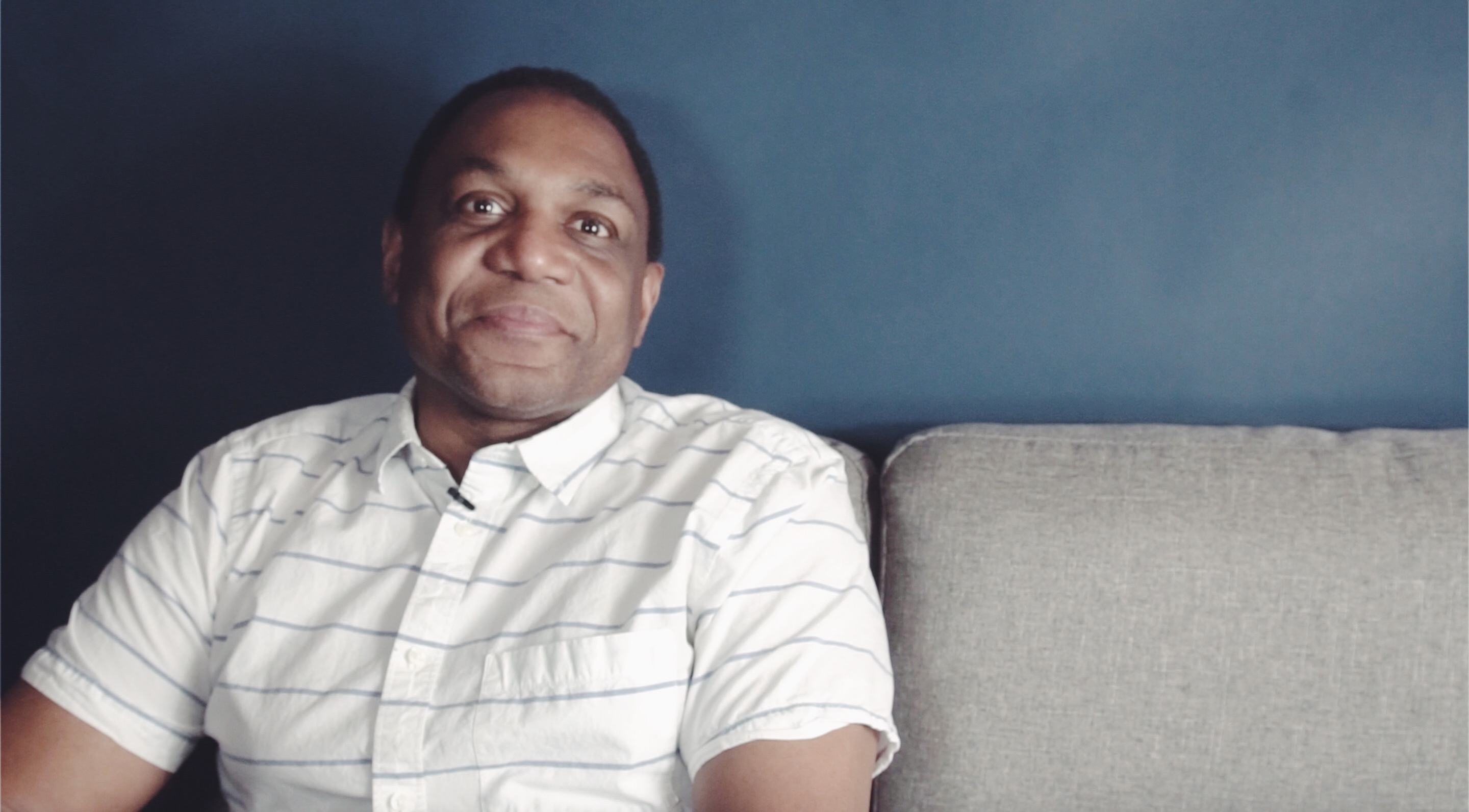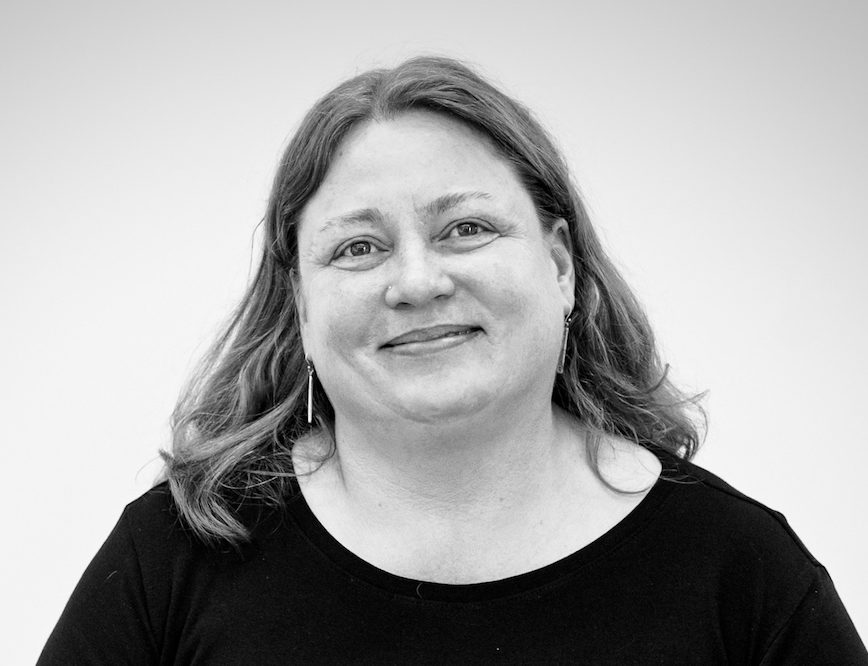Featured, Roddenberry Fellowship
Name: Andrew Grant-Thomas,
Current City: Amherst, Massachusetts.
Tell us more about your project, EmbraceRace!
EmbraceRace is a national nonprofit providing resources and creating a community for parents and other caregivers working to raise children who are thoughtful, informed, and BRAVE about race.
How did you get into this work?
There are a lot of markers along the road that brought me to EmbraceRace. Here are some.
I’m an immigrant from Jamaica whose family suffered a fair bit of race-related trauma when we came to the United States. My partner, in life and in EmbraceRace, Melissa, is the biracial daughter of immigrants from Dominica (not the Dominican Republic) and Quebec. They have their stories too. I’ve done racial and social justice research and advocacy all my professional career and have learned from and with more than a few truly wonderful thinkers and doers. I’m happy pappy to two lovely biracial Black girls, ages 8 and 11, and very much want to support their resilience and their conscientious agency through what I hope will be long, satisfying, productive lives.
And, of course, there’ve been lots of personal learning experiences threaded through all of this.
Finally, take to heart what the journalist Max Lerner said of himself: “I am neither an optimist nor pessimist, but a possibilist.” Does it feel probable that in 20 years we’ll look back on these grim times with wonder and gratitude for the distance we’ve traveled? Doesn’t feel likely. But is it possible? Yes! Absolutely. Truly, to be a member of the Roddenberry Fellowship community is to rub elbows with a lot of deeply invested possibilists. I’ll throw in with people like that every time.
Who inspires you?
Sounds like a danged cliche, but: all the people pushing back in the face of rampant injustice and unfairness, living their lives, loving their children. All the caregivers, families, and communities whose lives testify to about the hard stuff – oppression, bigotry, indifference, dehumanization – but also to our capacities for joy, love, celebration, humanity, friendship, and more even in the midst of hardship. Plus, honestly, in light of what I (think I) know about how the world works, and the relatively privileged hand life has dealt me, I’ll be really ticked and deeply disappointed in myself if I don’t put in the work.
How can people get involved in the work that you are doing? How can they help you and your project?
First, take some time to give us a look, not just now but also 6 months from now. Seriously, put a note on your calendar for mid-October to (re)visit the EmbraceRace website. And join our mailing list so you’ll know what’s going on. We have a lot going on now, and tons more good, exciting programs and projects coming over the next six months. The first step in supporting us, if that’s what you want to do, is to dig your fingers into the soil of our work.
Second, be an ambassador for EmbraceRace! Share our Facebook posts, our resources and tools. Tell folks in your circles about our Talking Race & Kids webinar series, about our Action Tips and children’s book lists, about the storytelling and other initiatives we’re launching soon. Everything we do is free to participants. Know about groups and organizations focused on kids, parents, families, schools, that might be interested in seeing what’s up with EmbraceRace? Hook us up!
Third, once you’ve checked us out, if you like what you see and really want to invest in this work, donations are very needed and always welcome. AND so are volunteers. If you’re willing/able to spare some time to volunteer with us, I’d love to talk about what that might look like. Reach out! andrew@embracerace.org.
Finally, do your own work. Whether you’re a parent, teacher, grandparent, aunt or uncle, big sibling, coach, tutor, mentor, child care provider, it’s a good bet that YOU play a role in the upbringing of at least one child. What contribution are you making to how that child’s emerging perspective on the world, not least on race? Could you be more thoughtful and deliberate about that contribution? My wife and I started EmbraceRace because the answer to that last question, for us, was a resounding YES! If it is for you, too, and you want to take on the challenge, you will not be alone! maybe we can help.
What is the most recent book you have read?
Trophy, by Steffen Jacobsen. Described as a “nerve shredding page turner” (how many pages can you turn after your nerves have been shredded?!), it begins like this: “When they found him, he was watching the sun go down behind the mountains west of Porsanger Fjord, knowing he would never see it rise again.” Yikes.
If you weren’t working in the area you’re in, is there another issue area you would be in?
The politics of public health is a hugely important issue that encompasses a lot of things, from the racial and class dynamics of “natural disasters” here in the US and around the globe to the very different trajectories of disease throughout the world (e.g., HIV/AIDS in Brazil vs. the countries of southern Africa over the last 30 years).
I’m also really interested in the concept of “opportunity hoarding” with respect to social capital. Over the last decade or so there’s been a lot of talk about opportunity hoarding with respect to income, wealth, “good” schools and neighborhoods. I’d love to devote more time thinking about how we (far beyond the “1%”) effectively hoard the benefits that flow from social connections. And about ways, many more of us who enjoy a fair bit of social capital, or more, could extend it to those, especially kids and families, who don’t have nearly enough to thrive.
What is your biggest goal for the year- personal and project-based?
I’m going to cheat and offer two project goals (though I feel blessed to be excited about goals on both fronts).
We’re pushing to launch two initiatives this fall that I’m ridiculously excited about. The first is Building Resistance, Resilience & Joy with Black Children: A 21-Day EmbraceRace Challenge for Parents & Caregivers. The title is pretty descriptive. Building Resistance will be an online curriculum that includes opportunities for group work and online exchanges. We’re working with some wonderful people, including several folks from the American Psychological Association, and plan to pilot it in October and do a full-fledged launch in January. We’ve already had early conversations about similar programs for girls of color, Muslim kids, Latinx kids, racialized LGBTQ kids, and young people transitioning out of foster care. Lots of interest in this way of potentially bringing really good content to lots of people.
A second big goal is to launch our storytelling initiative. CounterStories is about gathering and sharing personal stories that capture the extraordinary range of ways that individuals, families, and communities experience race, childhood, and caring for children across lines of race, ethnicity, class, immigrant status, geography, religion, and so much more. These can be stories of conflict and tension, bigotry and division – the hard stuff. They can also be stories of joy, family, friendship and community, resistance and camaraderie, resilience, and laugh-out-loud humor. This is all about building community.
Stories submitted will be posted on the EmbraceRace web site (www.embracerace.org), for sure, but we’re also developing ideas for engaging featured stories robustly in ways that don’t run too big a risk of troll sabotage.




